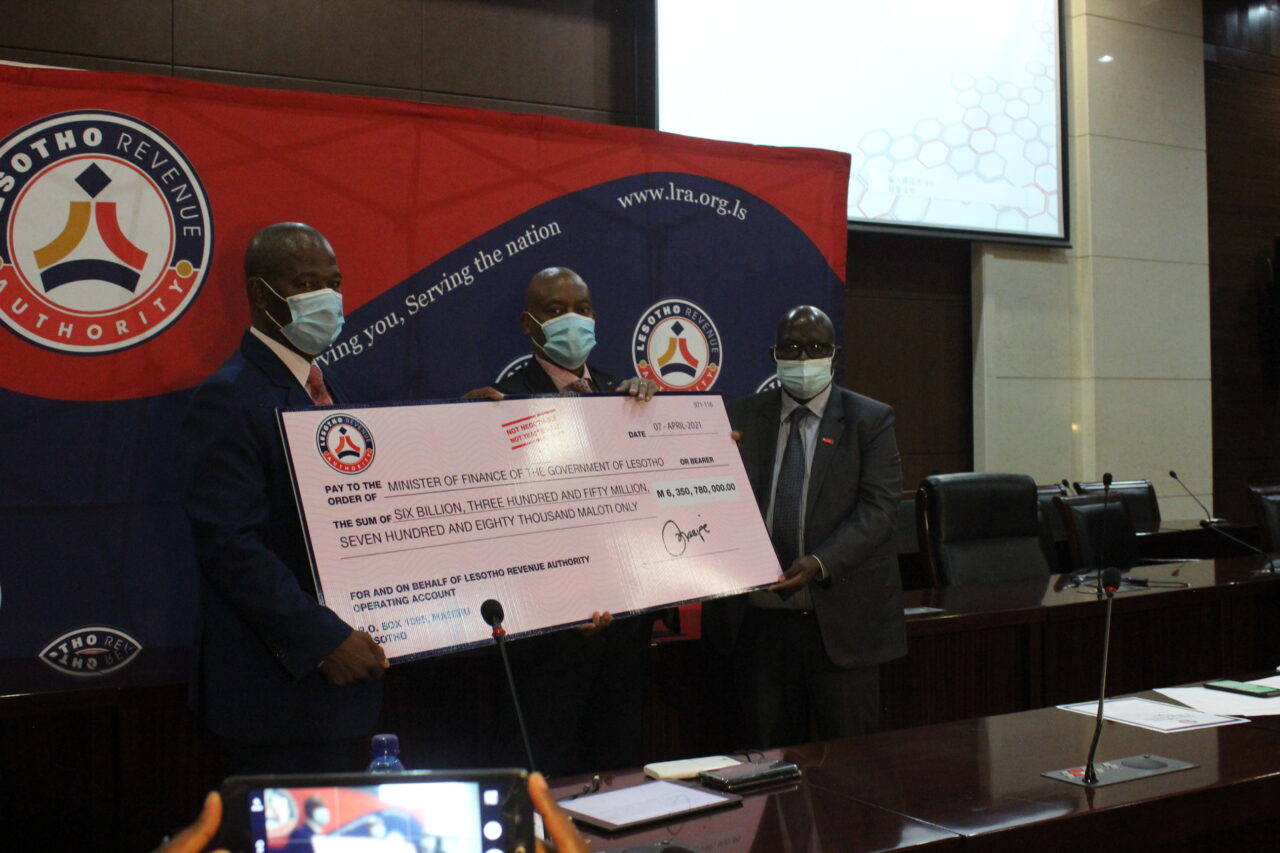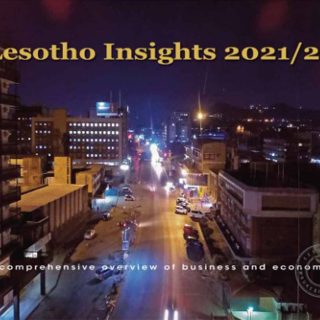Inland Tax Collection Remains Resilient in the Wake of Covid-19

Writes Manyathela Kheleli
The 2020/21 fiscal year has been the most challenging for Lesotho’s economy and the world. Rocked by the devastating effects of Covid 19 and a recession never seen in recent history, it has been one of the most economically trialing period for Lesotho and the rest of the world. In fact, the International Monetary Fund estimates that the global economy shrunk by 4.4% in 2020. The IMF describes the decline as the worst since the Great Depression of the 1930s. Amid these circumstances, tax collection was always going to be a monumental task for the Lesotho Revenue Authority (LRA). When the Covid-19 pandemic hit, Lesotho introduced a series of hard lockdowns and restrictions of movement which affected commercial activity. The implications of these measures on tax policy led to the revision of the tax collection target from the initial M7,591 billion to M5.605 billion. The Authority also introduced measures to defer tax payment for both VAT and Income Tax to ease the burden, But the LRA however went on to collect M6,350 billion, surpassing the new target by M745 million.
When the governments’ fiscal year closed on 31st March, the Lesotho Revenue Authority also closed its ledgers for the collection of inland taxes, predominantly driven by Income Tax and Value Added Tax (VAT). In 2020/21 financial year, the LRA was compelled to revise its annual targets downwards with the overall reduction of 35% of expected revenue due to the devastating effects of the Covid 19 pandemic to the economy. A lot of strain was felt in the collection of VAT, which plummeted due to economic inactivity as most businesses were closed.
The revised target for VAT in 2020/21 was M2,331 billion for the year and the Authority was able to remit M2,608 billion, thereby exceeding the target by 12%. In the previous financial year, VAT collections totaled M2,906 billion, indicating a decline of M572 million in real terms, albeit in very tough economic times. About 72% of VAT collections were collected from the tertiary sector comprised of retail and services, whilst the primary sector made up of mining and agriculture contributed 22%. Manufacturing and construction contributed the remaining 6%.
Looking at the collection trends in the 2020/21 financial year, VAT collections contracted due to Covid-19 restrictions which affected the global supply chains, thereby negatively affecting domestic VAT collection. According to the LRA, monthly VAT collections averaged M200 million, which was below the M230 million average of collections in 2019/20 financial year. In particular, the effects of Covid were largely felt in May when the Authority collected only M42.6 million, thereby missing the target by 77%.
With regards to Income Tax, which is composed of tax types including Pay As You Earn (PAYE), Company Income Tax (CIT) and withholding taxes, collections were largely resilient for most of the year. For the year in review, the revised target for Income Tax was M3,274 billion, on which the LRA managed to collect M3,743 billion. This performance indicates that the Authority exceeded the target by M455 million, which represents a 14% increase above target. However, in real terms, Income Tax collections declined by M312.6 million compared to the M4,055.6 billion collected last year. The LRA did experience declining PAYE collections, mostly from the private sector as staff were either laid off or received lower salaries as a consequence of the Covid-19 pandemic. Reduced business activity also implied lower company tax, especially in the service sector which forms the backbone of Lesotho’s business landscape. This reduction was also evident in the collections of withholding taxes from government, who remains the biggest consumer of goods and services. Withholding taxes were 50% lower than 2019/20 financial year.
Granted that the overall collection target set for the LRA was relatively lower than the targets set in the previous years, overall, inland taxes combining both VAT and Income Tax amounted to M6,350 billion against a target of M5.605 billion. In the trying circumstances brought by Covid-19, the taxman registered a surplus in collections amounting to M745 million, which represents an increase of 13% to the fiscus, the largest gain not recorded in the past 10 years.
Insert graph on slide 6
In the coming financial year, it is hoped that the economy will gradually move towards regaining some considerable stability, as the pandemic gets to be controlled with vaccination and other prevention measures. The LRA is also set to make more collections with the increases in sin taxes (alcohol and tobacco levies at 15% and 30% respectively) as well as the 1% increase on VAT on electricity, which went up from 9% to 10% effective from 1st April, 2021.
Similar to most developing countries, the collection of inland revenues remains the most critical component that supports the government treasury especially in the wake of donor fatigue, dwindling Southern African Customs Union (SACU) receipts and declining foreign direct investment seen in recent history. The contribution of inland taxes to the national budget averages 39%, demonstrating the critical role played by the LRA in the collection of taxes to support the treasury.
Looking into the future of tax collection in Lesotho, the LRA envisages to also collect non-tax revenue going forward. The Authority also intends to digitize its tax collection services and reduce the costs of compliance for taxpayers. The current costs of collection are at an average of M0.4 cents per Loti, which the taxman hopes to reduce to M0.1 cent per Loti so that the difference goes directly to the fiscus. This new approach is articulated in the 2018-2023 Rea Aha – We Are Building Strategy – of the LRA, that also aspires to improve voluntary compliance and the quality of service to taxpayers.
According to GoBankingRates, which ranks countries based on tax revenue as a percentage of gross domestic product, Lesotho falls in the category of highly taxed countries, with the overall contribution of taxes to the country’s GDP standing at 31.57%. The country is in the same bracket with regional peers such as Namibia at 29.26% and South Africa at 26.45%. On the other hand, Madagascar has one of the smallest tax burdens in the world, where the net contribution of taxes to Madagascar’s GDP is only 10.52%. The United Arab Emirates tops the list as the most tax friendly country on earth, where tax revenues account for just 0.96% of the UAE economy. This is possible because of immense oil and gas revenues generated by the country to ease the tax burden.







